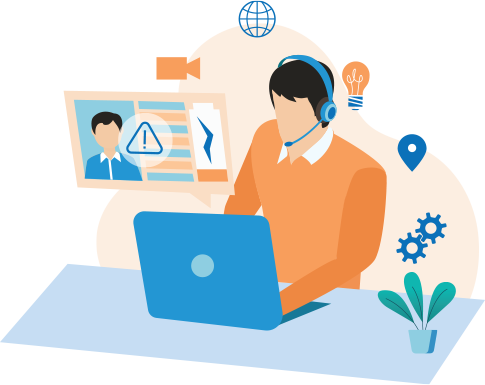Why Worker Tracking Software Is Important for Modern Workplaces
In today's quickly advancing workplace, the implementation of employee tracking software has come to be progressively essential for companies seeking to enhance their operations. This innovation not only boosts efficiency and liability however likewise sustains the unique obstacles presented by remote work characteristics. By supplying crucial understandings into worker performance and process, business can make informed decisions that drive performance. The balance in between oversight and employee count on remains a nuanced element that requires mindful consideration. What are the effects of this balance for organizational culture and performance?
Enhancing Productivity and Efficiency

Such software allows supervisors to assess the effectiveness of different techniques and staff member involvement levels, permitting data-driven decision-making. For example, tracking tools can expose patterns in efficiency, assisting leaders understand when employees are most engaged and when they might call for additional support or resources.
Moreover, worker tracking software program cultivates a society of liability and objective positioning. When staff members recognize their efficiency is being tracked, they are most likely to continue to be concentrated and inspired, leading to higher output levels (Employee Monitoring Software). Additionally, this software program can promote far better interaction and partnership, as teams can acquire a clearer understanding of their cumulative duties and progression
Making Certain Liability and Conformity
Making sure responsibility and compliance within a company is crucial for keeping moral requirements and regulative adherence. Employee surveillance software application plays a crucial function in accomplishing this goal by offering real-time data and understandings into worker tasks. By tracking efficiency metrics and guaranteeing adherence to firm plans, organizations can foster a culture of duty amongst employees.
This software application assists determine possible compliance dangers by keeping track of adherence to industry guidelines and internal guidelines. Economic organizations need to abide with strict policies, and tracking software program can inform management to any kind of abnormalities that may indicate non-compliance. Moreover, by recording worker activities, business can shield themselves from possible disagreements or legal obstacles that may occur.
On top of that, openness fostered by tracking can discourage dishonest behavior, as employees know that their activities are being tracked (Employee Monitoring Software). This develops a setting where liability is stressed, and workers are inspired to preserve high standards of conduct
Sustaining Remote Job Characteristics
As companies progressively embrace see page remote work setups, the role of employee surveillance software program has become vital in supporting these dynamics. This innovation enables businesses to make certain that remote workers remain involved and efficient, even when functioning away from the traditional workplace atmosphere. With the rise of versatile job schedules, keeping track of software aids to establish clear expectations regarding efficiency and productivity.
Reliable worker monitoring devices allow managers to track job hours, project progression, and task conclusion. This openness cultivates a feeling of responsibility amongst remote workers, urging them to manage their time successfully. Furthermore, these services usually include attributes that help with interaction and collaboration, making it possible for teams to remain linked no matter their physical locations.
Furthermore, staff member monitoring software can help determine possible areas for improvement in process and efficiency. By analyzing usage patterns and performance metrics, companies can customize their assistance and resources to satisfy the distinct challenges faced by remote workers. Eventually, welcoming surveillance software not just improves functional effectiveness but also grows a culture of count on and liability, which is essential for the success of remote job arrangements in today's fast-paced service setting.
Providing Valuable Insights
Monitoring software not only helps with remote job characteristics yet likewise supplies useful insights that can drive organizational renovations. By gathering data on worker efficiency and efficiency, organizations can recognize patterns and trends that inform decision-making procedures. This logical ability enables managers to determine locations where staff members succeed, as well as recognize traffic jams or inefficiencies in workflows.
Moreover, keeping an eye on software enables organizations to analyze the effectiveness of numerous tools and procedures. By assessing data connected to job completion times or project milestones, organizations can improve their methods, resulting in even more structured operations. Additionally, recognizing worker engagement degrees with content monitoring metrics can guide monitoring in enhancing group dynamics and resource allowance.
Furthermore, these insights can help in developing targeted training programs customized to the specific demands of the workforce. By recognizing ability spaces and efficiency inconsistencies, companies can purchase staff member development that boosts general performance and task complete satisfaction.
Cultivating Employee Interaction and Trust

By actively involving staff members in discussions about monitoring methods, companies can cultivate a feeling of ownership and incorporation. This technique not just relieves issues regarding personal privacy however additionally motivates staff members to see surveillance as a resource for specialist growth and liability.
Furthermore, using the understandings acquired from surveillance can lead to customized support group that attend to useful content specific demands, promoting a society of constant enhancement. When workers really feel valued and comprehended, engagement naturally follows.
Depend on is more reinforced by acknowledging and compensating staff members based on the information collected, showcasing that monitoring is not just a surveillance device but a means to acknowledge and celebrate payments. Inevitably, a well balanced technique to employee tracking can produce an atmosphere where involvement grows, leading to enhanced task satisfaction and organizational loyalty.
Conclusion
In conclusion, the application of worker tracking software is crucial for contemporary work environments, as it dramatically boosts performance, liability, and involvement. By offering real-time insights right into efficiency and assisting in reliable interaction, such software application help in enhancing procedures and making certain conformity with market standards. It sustains remote job characteristics, eventually fostering a society of trust fund and obligation. For that reason, the strategic use of monitoring devices can result in improved business results and increased staff member satisfaction.